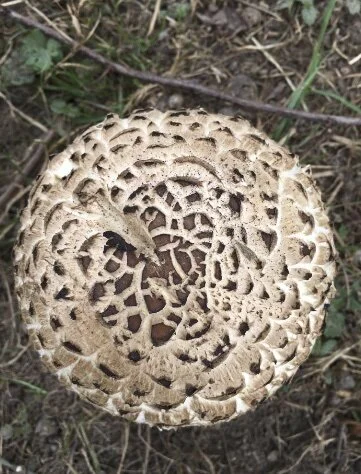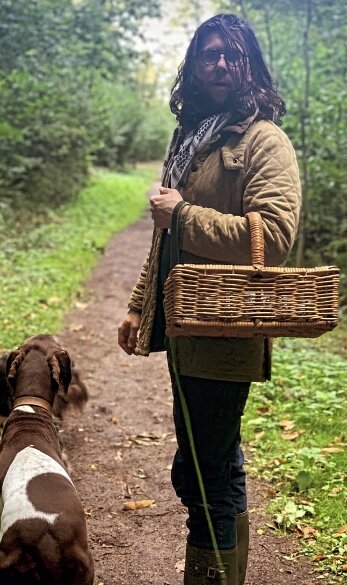OPINION: @WeCookEverything - How’s Your Relationship With The Mushroom?
Restaurateur Morgan Lewis asks you to think about your relationship with food and whether you truly appreciate the source
When you read the word “mushroom”, what picture forms in your mind? If you can pause to focus on that for a moment this image will tell you a lot about your relationship to that ingredient.
I always enjoyed food, but I was usually naïve to any real back story of what I was eating. It saddens me to think that so many people are completely sheltered from their own food inheritance, had I asked myself that same question 10 years ago I would undoubtedly have conjured a picture in my mind’s eye of sterile white mushrooms, in an open topped, brown carton with a limp skin of clingfilm draped over, stealing it away from reality.
How they got there wouldn’t really have concerned me. Now, the word “mushroom” fires an excited lash of memories across my mind. I’m delivered back to my first penny bun mushroom, dank, heavy smells of mycelial networks boiling below, rustling of leaf litter, quiet golden light curdled by bird calls; the feel between my fingers of a dense, drumskin-like stipe and that satisfying, hollow ‘pop’ when you break it free from the forest floor.
That’s part of my relationship with mushrooms and I haven’t even mentioned eating them! That’s not to say of course that button mushrooms from a supermarket have no place or are in some way invalid, in fact I use them all the time - they’re great! Though, they no longer define my relationship to mushrooms, I suppose I think of them now with a mixture of mostly gratitude and a shade of heartache.
So why is it important to reflect on these things you may ask? Well, it’s my thinking that when you begin to understand a thing’s environment, something about its life and where it fits into the world, you gain empathy. With this knowledge as a key you can open a one-way door to a place where you can’t be divorced from what you buy and eat; and yes, that skinless chicken breast had a life, a personality even.
That clear plastic box becomes its tomb and the cold halls of the supermarket, a mausoleum… make no mistake though, this is not a preachy vegetarian/vegan thing, this goes all the way to understanding that everything we eat shared our space and should be revered and respected for what it is and once was. You see, there’s a fine line between empathy and sympathy, sympathy leads towards misinformation and unfortunate food fears; a “la-la-la-I’m-not-listening” attitude with hands clamped over ears and eyes strained shut.
What we need, I think, is more empathy for our food sources. I suppose browsing the halls of the supermarket you feel absolutely nothing for that bunch of spring onions or that lamentable net of lemons, how can you be expected find them inspiring when we are so cut off from absolutely everything about them, reduced in the eye of the consumer to little more than a disregardable sputter of sour across your pancakes? I offer you this, seek out ingredients with a tangible story, you will taste and enjoy what you eat with renewed vivacity.
Doing what I do I am lucky enough to work with some incredible producers and I talk to them almost daily in detail about their products: that goes for veg, fish, meat and dry goods equally. When it comes to meat and fish we usually only deal with whole animals and when it comes to game we more often than not get the animals in the feather or in the skin. It is quite unusual, as far as I know, for restaurants to do that because it’s much more work and requires additional skills, but we choose that way whenever possible.
Thus keeping ourselves tethered to the legacy of the animal and helping us not to be numbed to the sacrifice. The pay-out of this emotional/time investment: You will cook better, be more creative and waste less if your food is not anonymous. It can be a hard thing to face a duck in the feather if you aren’t used to it, but far too easy just to open a clinical vacuum pouch with bleach clean breasts inside. Skinning a deer or plucking a duck in this context becomes therefore a form of death rite, a timeless human ritual now the dispassionate job of an automated machine.
One young chef recently said to me when he was working with a whole (locally reared) pig, that he felt he was “facing his own mortality”, I don’t think he knew how profound that was, but it seemed to me a striking kind of rebirth for him, I hope he never eats a ham sandwich again with careless abandon.
READER WARNING - SOME PEOPLE MAY FIND THE BELOW IMAGES UPSETTING, BUT WE FEEL NECESSARY TO INCLUDE THEM AS ILLUSTRATION TO THE ARTICLE
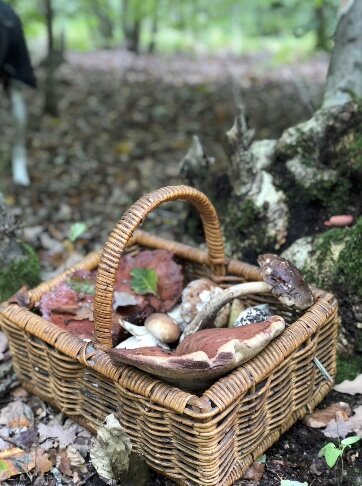
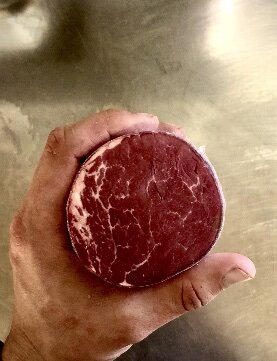
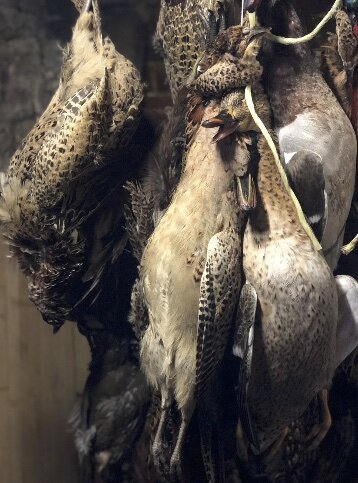
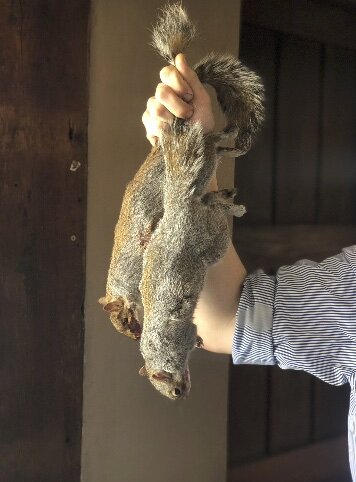
If you eat meat, I implore you to go out of your way to perform this ritual at least once, there are countless game keepers and wonderful farmers in Kent who can help you, talk to Giles from Longland Farm in Elham Valley, ask for a duck or a chicken in the feather, you will if nothing else be faced with one of the highest welfare, tastiest poultry meats you can acquire in Kent or arguably the UK.
Though you don’t have to eat meat, of course, to have a profound connection to your ingredients, but meat eaters have perhaps more responsibility to forge a relationship with their meals than vegetarians or vegans, as there are real emotions involved on both ends of the fork. If you’re not a meat eater, you can certainly have an equally transformative experience by taking foraging courses, again there’s plenty on offer in Kent, Miles from Forager Ltd or Nick from the Oast Smokehouse: a day with either of them and I can assure you a supermarket will never look the same. The vale will start to slip and you’ll begin to see ingredients “in code” – a bit like Neo at the end of The Matrix, when he finally awakens and is able to grasp the illusion for what it truly is; so what will you do; take the blue pill, or the red?
#foodcultkent

